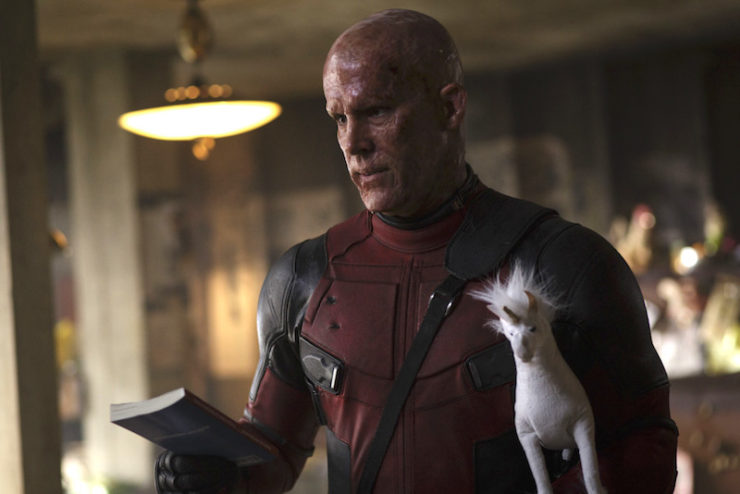We’re in a weird place right now, cinema-wise. People in the film industry keep trying to mollify fandom by suggesting that any number of characters could be queer, then finding out that fans aren’t interested in this game anymore—they want action and quantifiable results. They want representation that doesn’t come after publication, or without on-screen verification, or with a promise that it will show up in a few years.
But with that said, there is no possible way that you can convince me that Wade Wilson is straight. There’s just too much evidence to the contrary—and I don’t mean the number of slash fanfics with his name attached.
[Spoilers for Deadpool 2]
I should begin with a few pointed reminders. For one, Deadpool is pretty queer in the comics; he’s got a crush on Thor, and probably Cable, and he adores Spider-Man so much that when a bunch of teenage witches try to call upon Deadpool’s then-wife (the succubus Shiklah) with a spell to summon his “heartmate,” it’s Spidey who appears before the coven. As far as the films are concerned, it’s still up in the air—Wade seems like he might be genuinely attracted to unicorns (or at least the stuffed toy one he hangs onto while masturbating), and when he sees Vanessa briefly in some version of heaven at the end of Deadpool 2, she sends him back to the living world with the knowing words “Don’t fuck Colossus.” While Wade seems a little surprised at the request, he does seem to like the giant metalized mutant quite a bit. Also, Ryan Reynolds has gone on record to say that he would like Wade to have a boyfriend at some point in the film series… though that seems unlikely with Vanessa around, unless they’re also willing to broach the subject of polyamory in these films.
But when I say that Wade Wilson is obviously queer, I’m not really talking about who or what he would like to sleep with. I’m talking about his touchstones and signifiers—what he’s an acolyte of and why he loves it and what he uses to cope with his incredibly unlikely life. I’m saying that Wade Wilson is culturally queer. And whether or not that bears out with more definitive action in future films, that counts for something.
Look, you may not believe me, but I have a list.
1. Wham! and George Michael
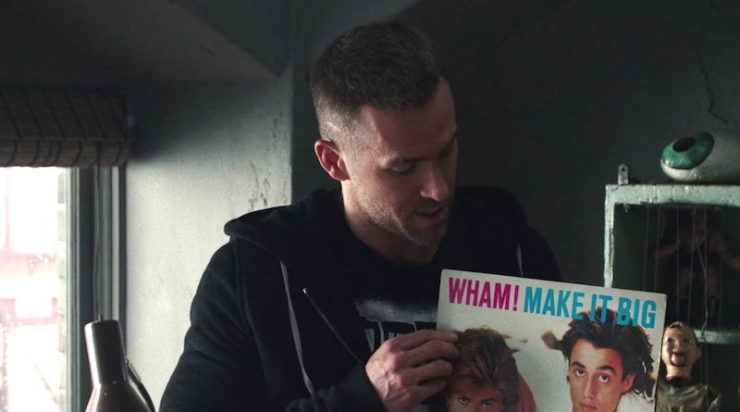
When Wade meets his girlfriend Vanessa and the two start intertwining their lives, one of the things he is adamant about bringing into their home is Wham! And while he’s into the band and their music, he’s also pointedly into George Michael specifically. Michael initially came out as bisexual in the ’80s, but later realized that he was gay, and his music career and philanthropy have made him an enduring gay icon. By Deadpool 2, Wade mourns the loss of Vanessa and then begins to mourn his favorite musician again as he recall the lyrics of “Careless Whisper” (Michael died the same year that the first Deadpool was released).
David Bowie
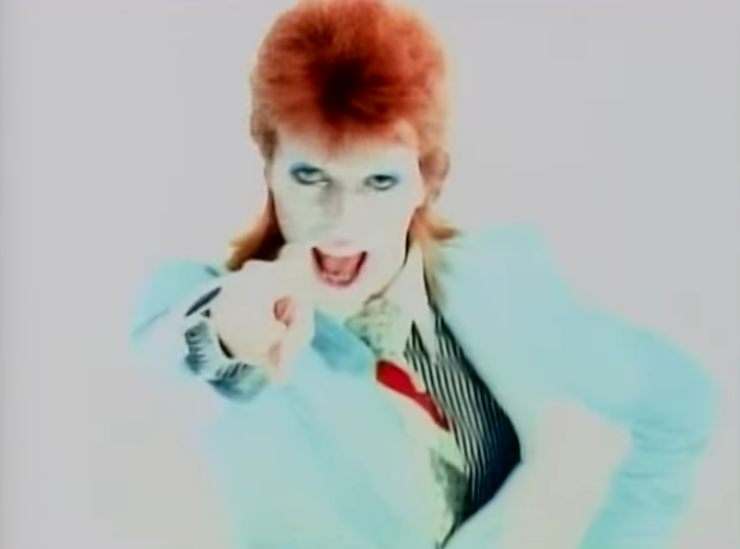
In the same breath that Wade laments the loss of George Michael, he says, “At least we’ve still got Bowie, right?” He’s wrong, as Bowie also passed in 2016, but his buddy Weasel does nothing to disabuse him of that notion. David Bowie has long been hailed as a queer icon, both for his claims to bisexuality in the ’70s and for embodying a certain panache and aesthetic and authenticity that many queer people have always keyed into. (I may talk about that a lot, personally…) The phrasing here is of note, too—Wade saying “we’ve” got Bowie, directly after noting Michael’s loss, could certainly serve to mean the whole world, but also easily reads as the queer community hasn’t lost all its bright stars. Which only makes it more depressing that he’s wrong.
Bea Arthur and The Golden Girls
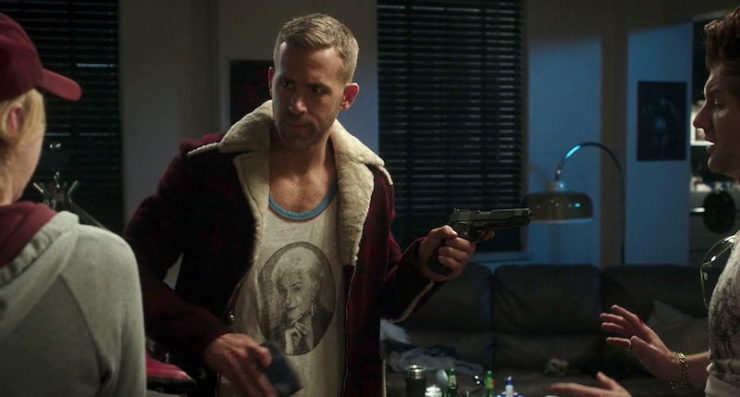
Wade’s love of The Golden Girls is actually part of comics canon, which is the reason why he sports a Bea Arthur t-shirt early on in the first film. (Said shirt cost the movie $10,000 for the permission to use Arthur’s likeness, and it was approved because Deadpool being a GG fanboy is that important.) And while the show was widely popular throughout its 1985-1992 run, it has always sported a very large gay fanbase, and has long been revered for its fabulous fashion, “drag queen-esque” banter, and ability to tackle progressive issues of the time—Blanche had a gay brother, and they were one of the first sitcoms to feature a storyline that dealt with AIDS. The Golden Girls continues to air in reruns, and the queer cable network Logo pulls in reliable ratings from the show, introducing it to new and younger audiences and keeping it in the queer consciousness. One of the show’s writers, Marc Cherry, claimed that though much of the dialogue was created by their majority-straight-male writers room, the instant Bea Arthur said her lines, “it comes out gay.”
Rent
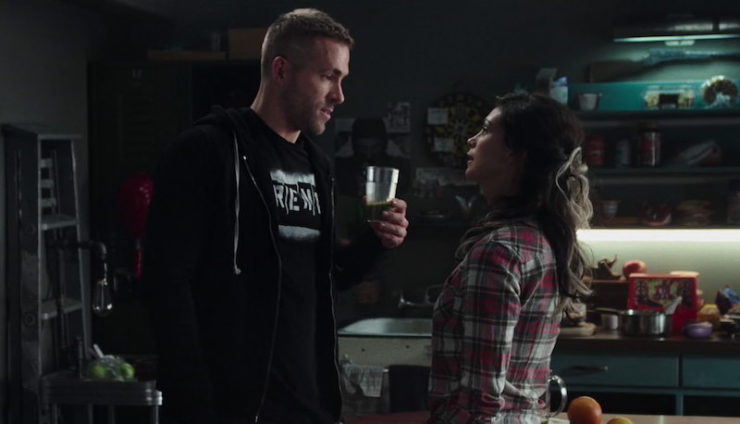
Speaking of narratives that dealt with the topic of AIDS, the musical Rent by Jonathan Larson takes the storyline from La Bohème and sets it during the AIDS crisis. The show has been a smash hit since its premiere in 1996, and long been beloved by the queer fans for its vibrant set of characters and its honest reflection of New York City during a specific place and time. Wade also has a t-shirt with the original Rent logo emblazoned on it. Surely everyone making the movie thought this little touch would be comical, but when it’s a follow up to a shirt with Bea Arthur’s face on it, that shirt becomes a block on which character is built.
Bernadette Peters
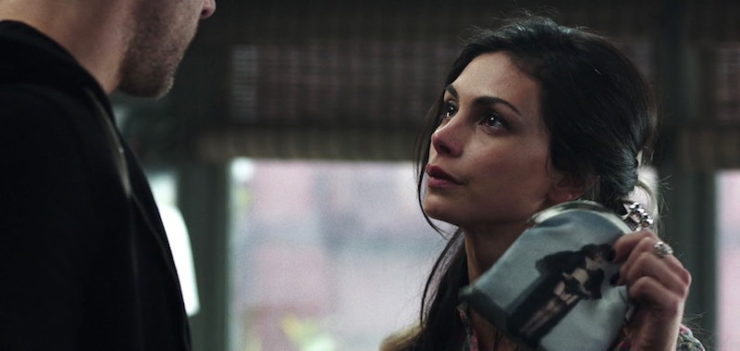
Wade is sexually attracted to Bernadette Peters, a point made when Vanessa finds a change purse of Wade’s showcasing Peters in a lovely set of lingerie, and he makes a joke about “every time he’s spanked it” to the image on said change purse. But Bernadette Peters is more commonly found on Broadway as one of their ranking divas. (She is currently starring in Hello, Dolly! as I am typing.) Broadway divas are typically beloved in queer culture—or more specifically in white gay male culture, so Wade’s obsession with queer heroes runs the gamut.
Barbra Streisand and Yentl
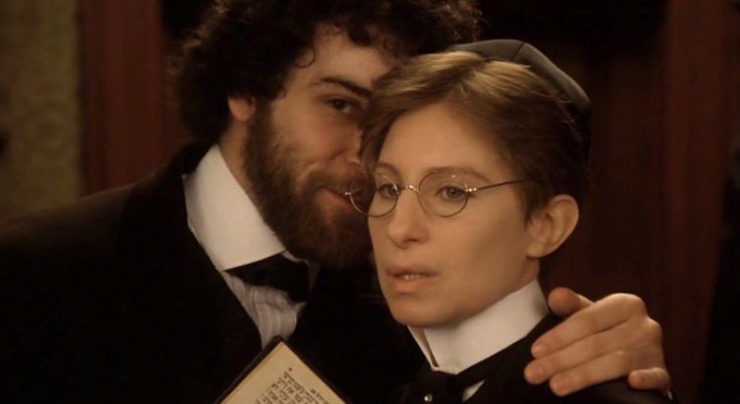
Barbara is another diva beloved by the gay community (who also starred in Hello, Dolly! though that was the film version of the musical, and she was about thirty years too young to play the part at the time). In Deadpool 2, Wade and Vanessa are watching a Streisand flick, but it’s not The Way We Were or Meet the Fockers—it’s Yentl, the Jewish musical about a young woman living in Poland who decides to dress like a man and take her brother’s name so that she can receive education in Talmudic Law, which is prohibited for women. Over the course of the film, Yentl falls for a man named Avigdor, all while she is married to a woman who believes she is male. While the film does end with Yentl revealing her gender to Avigdor, he develops feelings for her before he knows that she’s actually a woman. The movie has been used as a queer indicator before; in 1997’s In and Out, Howard Brackett (Kevin Kline) tries to have a macho bachelor party while he’s panicking about the possibility of being gay (which he is). Not knowing this crisis is occurring, his friends throw him a party full of things they know he loves—including the soundtrack to Yentl. When Howard expresses his dismay at their choices, one of his pals admits that he thinks Yentl is boring and that Streisand was too old for the part. This leads to a brawl, as Howard cannot let that opinion stand.
Frozen
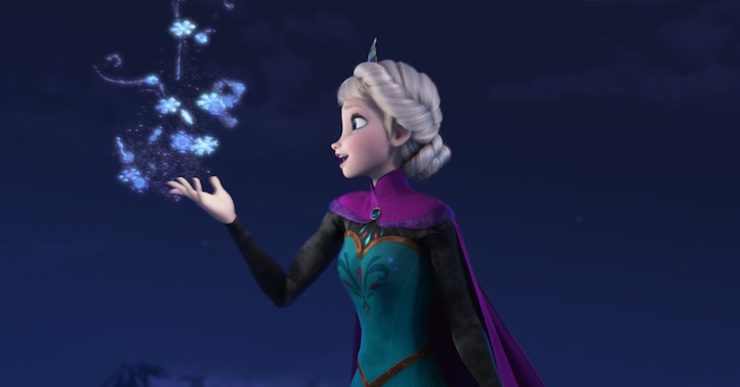
While he’s hanging out in the Icebox prison, Wade notes that one of the songs from Yentl, “Papa, Can You Hear Me?”, is basically the same as Frozen’s “Do You Wanna Build A Snowman?” Which means that Wade has seen Frozen and knows the music well enough to make the association. Frozen was lauded by queer fans on several fronts; there was a campaign to get Queen Elsa a girlfriend that continues strong to this day; the animators tried to subtly slip in a gay couple with Oaken, the trading post owner, and his family; the film’s clarion cry of “Let It Go” became a queer anthem that was performed and parodied by fans everywhere. So there’s that, too.
There’s more, of course, but those are probably the most obvious examples. And sure, you can say that all these touchstones are meant for laughs, are supposed to be comedy that props up Deadpool’s indiosyncracies and oddness. But it’s not going to read that way to queer people. It just looks familiar. Wade Wilson can’t remember what happens in Star Wars, but he’s hip-deep in George Michael’s discography. Wade Wilson spends his weekends watching Barbra emote, and calls Negasonic Sinéad O’Conner because he gets it. Wade Wilson loves Vanessa, but he’s got a healthy obsession with unicorns, too. There are other items we could count as evidence, like the way he grabs Colossus’ butt and how he seems to lovingly stroke Dopinder’s face every once in a while, but reducing someone’s sexuality to who they would prefer to sleep with is silly and also less important than the world keeps insisting. The point is that partners may come and go…
…but Bea Arthur is forever.
Emmet Asher-Perrin would also like to remind y’all that Wade Wilson is canonically a Hufflepuff. You can bug her on Twitter and Tumblr, and read more of her work here and elsewhere.










